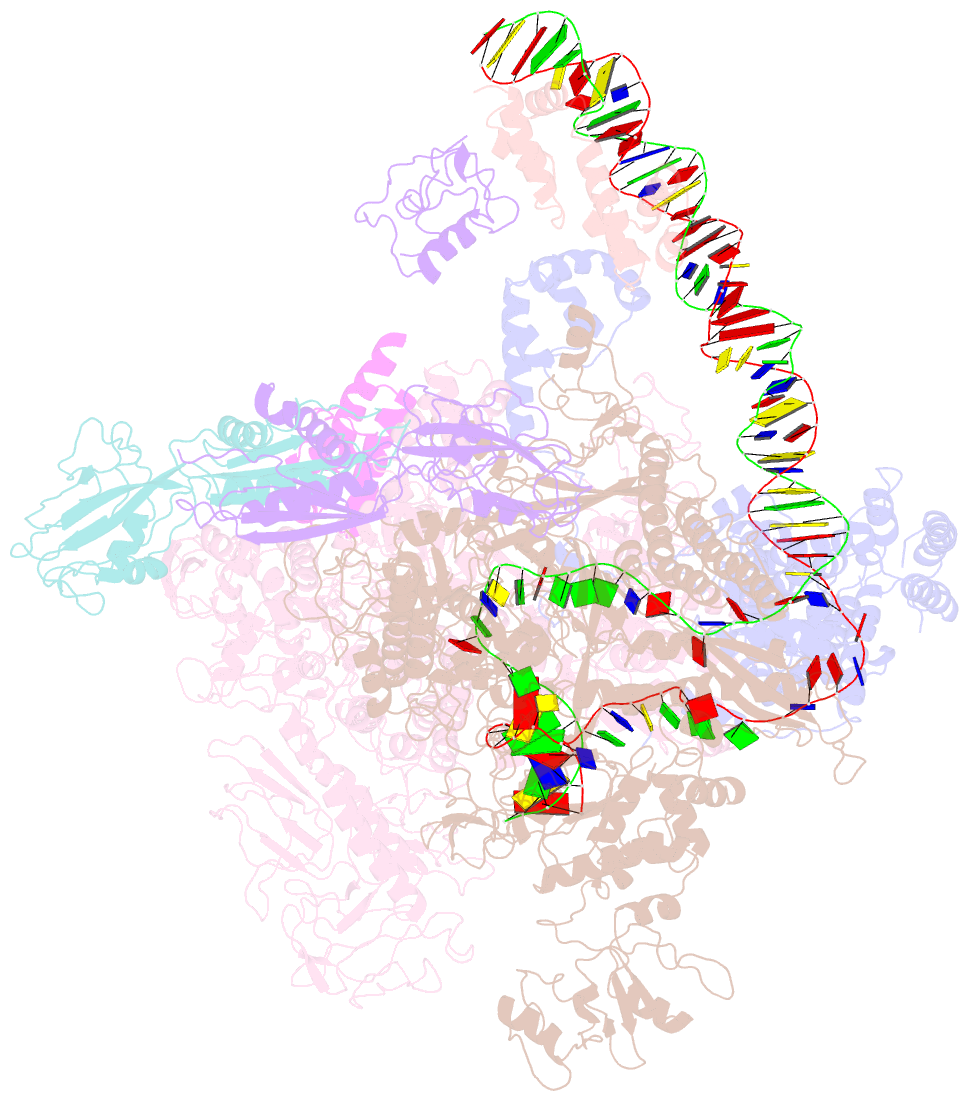Summary information and primary citation
- PDB-id
- 7w5w; SNAP-derived features in text and JSON formats;
DNAproDB
- Class
- transcription-DNA
- Method
- cryo-EM (4.55 Å)
- Summary
- cryo-EM structure of soxs-dependent transcription activation complex with micf promoter DNA
- Reference
- Shi J, Wang L, Wen A, Wang F, Zhang Y, Yu L, Li F, Jin Y, Feng Z, Li J, Yang Y, Gao F, Zhang Y, Feng Y, Wang S, Zhao W, Lin W (2022): "Structural basis of three different transcription activation strategies adopted by a single regulator SoxS." Nucleic Acids Res., 50, 11359-11373. doi: 10.1093/nar/gkac898.
- Abstract
- Transcription activation is established through extensive protein-protein and protein-DNA interactions that allow an activator to engage and remodel RNA polymerase. SoxS, a global transcription activator, diversely regulates subsets of stress response genes with different promoters, but the detailed SoxS-dependent transcription initiation mechanisms remain obscure. Here, we report cryo-EM structures of three SoxS-dependent transcription activation complexes (SoxS-TACI, SoxS-TACII and SoxS-TACIII) comprising of Escherichia coli RNA polymerase (RNAP), SoxS protein and three representative classes of SoxS-regulated promoters. The structures reveal that SoxS monomer orchestrates transcription initiation through specific interactions with the promoter DNA and different conserved domains of RNAP. In particular, SoxS is positioned in the opposite orientation in SoxS-TACIII to that in SoxS-TACI and SoxS-TACII, unveiling a novel mode of transcription activation. Strikingly, two universally conserved C-terminal domains of alpha subunit (αCTD) of RNAP associate with each other, bridging SoxS and region 4 of σ70. We show that SoxS interacts with RNAP directly and independently from DNA, remodeling the enzyme to activate transcription from cognate SoxS promoters while repressing transcription from UP-element containing promoters. Our data provide a comprehensive summary of SoxS-dependent promoter architectures and offer new insights into the αCTD contribution to transcription control in bacteria.





